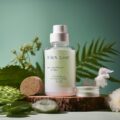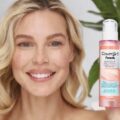Introduction to Retinol
Retinol, a derivative of vitamin A, is a popular ingredient in skincare products due to its proven effectiveness in addressing various skin concerns such as wrinkles, fine lines, and acne. Despite its benefits, numerous myths surround the use of retinol, leading to confusion and misuse. In this article, we aim to debunk common retinol myths to help you achieve better skincare results.
Myth 1: Retinol Causes Skin Thinning
One of the most pervasive myths about retinol is that it causes the skin to thin. In reality, retinol works by promoting cell turnover and collagen production, which can actually thicken the skin over time. This myth likely stems from the initial peeling and flaking that some users experience, which is a temporary side effect as the skin adapts to the treatment.
Myth 2: Retinol Should Only Be Used at Night
While it is true that retinol can make your skin more sensitive to sunlight, it is not strictly necessary to use it only at night. The key is to apply a broad-spectrum sunscreen during the day to protect your skin. If you prefer using retinol at night to avoid the hassle, that’s perfectly fine, but don’t feel restricted by this myth.
Myth 3: Retinol Is Not Suitable for Sensitive Skin
Many people with sensitive skin avoid retinol, fearing it will cause irritation. While retinol can be potent, it can still be used by those with sensitive skin if introduced gradually. Start with a lower concentration and apply it less frequently until your skin builds tolerance. Additionally, consider using a product formulated for sensitive skin to minimize potential irritation.
Myth 4: Retinol Results Are Immediate
Another common misconception is that retinol delivers immediate results. The truth is that retinol works gradually, and it can take several weeks to months to see significant improvements. Patience and consistency are key when using retinol. Regular use over time will yield the best results.
Myth 5: More Retinol Equals Better Results
It’s easy to assume that using more retinol will speed up results, but this is not the case. Overusing retinol can lead to excessive dryness, irritation, and peeling. It’s important to follow the recommended usage guidelines and allow your skin to adjust gradually. A pea-sized amount is usually sufficient for the entire face.
FAQs About Retinol
1. Can I use retinol if I’m pregnant or breastfeeding?
It is generally advised to avoid retinol during pregnancy and breastfeeding due to potential risks. Consult your healthcare provider for alternative skincare options.
2. How often should I apply retinol?
Start by applying retinol two to three times a week and gradually increase the frequency as your skin builds tolerance. Always follow the product’s instructions.
3. Can I layer other skincare products with retinol?
Yes, you can layer other skincare products with retinol. However, avoid using other potent ingredients like exfoliants or acids on the same night to prevent irritation.
4. What is the best concentration of retinol to start with?
Begin with a lower concentration, such as 0.25% to 0.5%, especially if you are new to retinol. You can gradually increase the concentration as your skin becomes more accustomed to it.
5. Can I use retinol around my eyes?
Yes, you can use retinol around the eyes, but be cautious as the skin in this area is more delicate. Opt for a product specifically designed for the eye area or use a lower concentration.
Conclusion
Retinol is a powerful skincare ingredient that can deliver remarkable results when used correctly. By debunking these common myths, you can make informed decisions and incorporate retinol into your skincare routine effectively. Remember, patience and consistency are essential for achieving the best outcomes with retinol.









